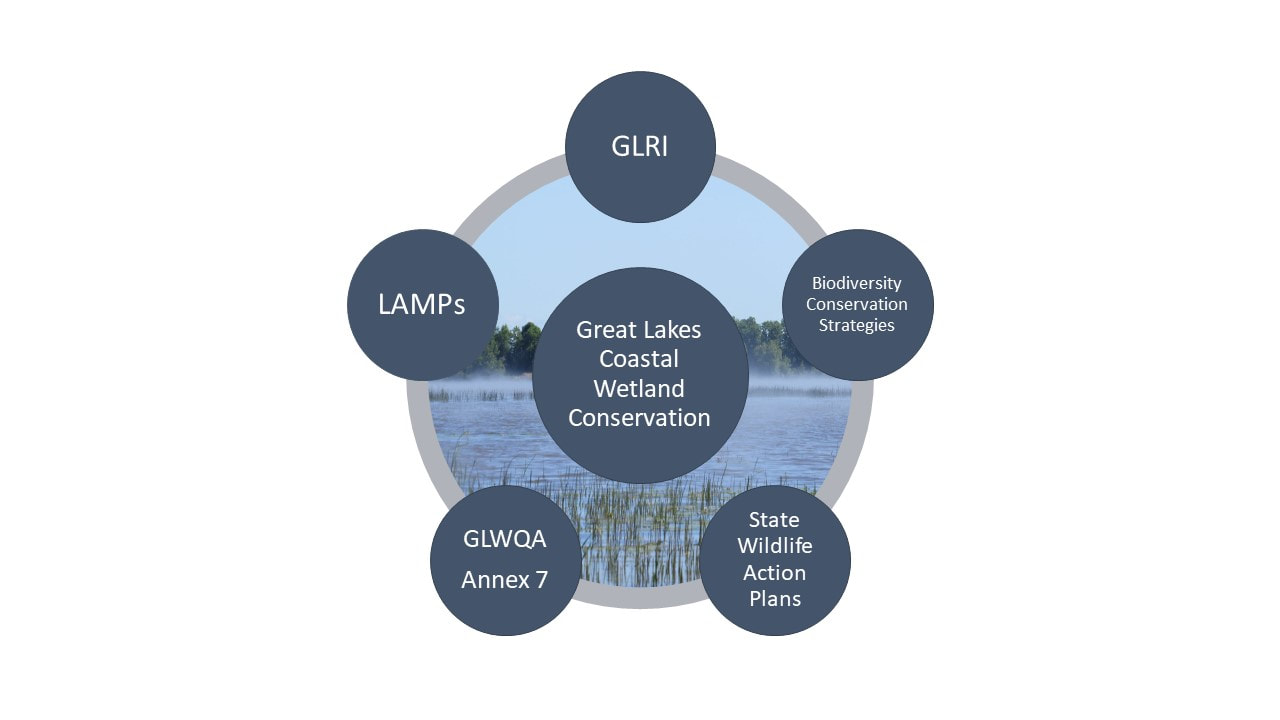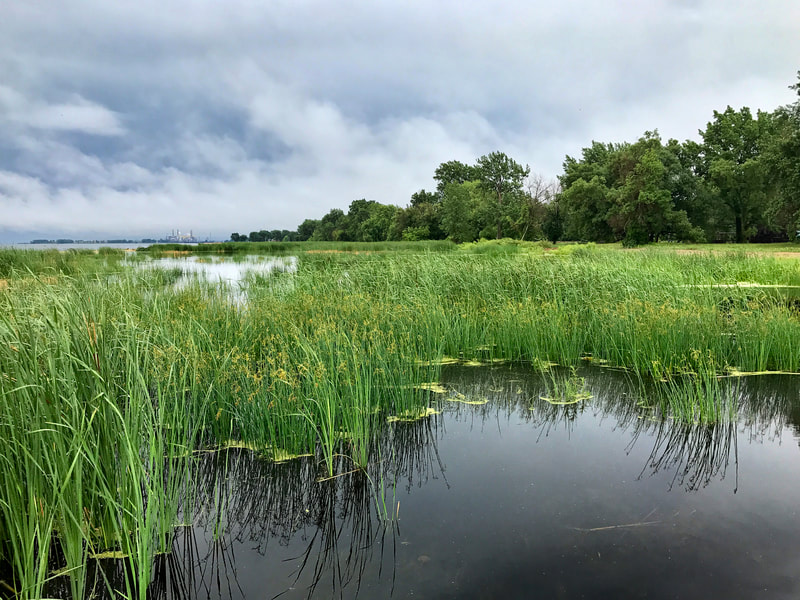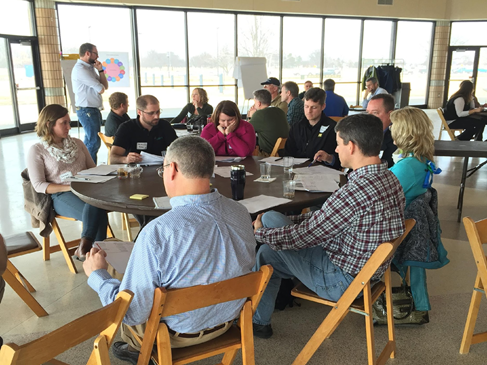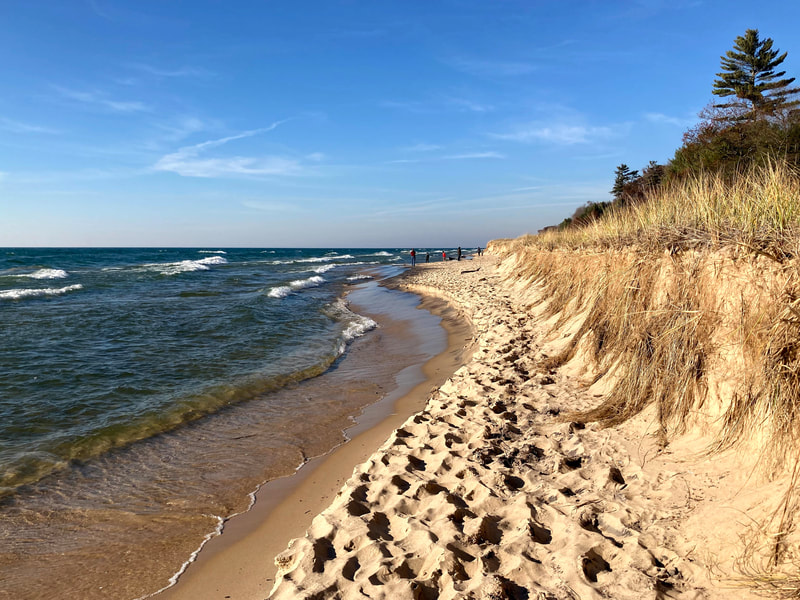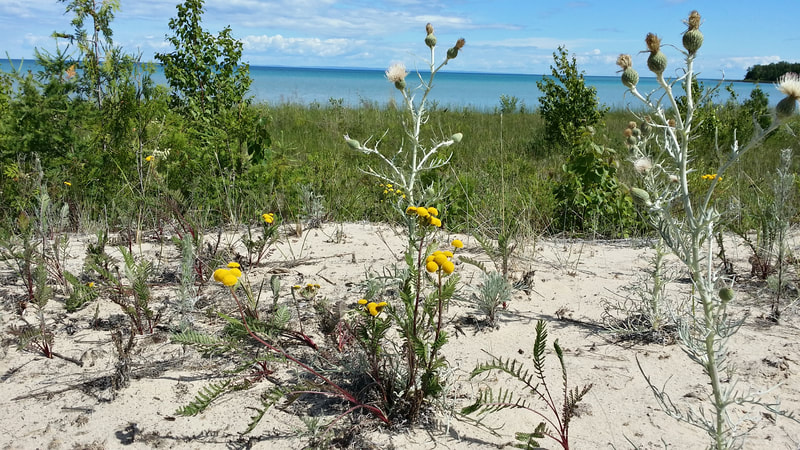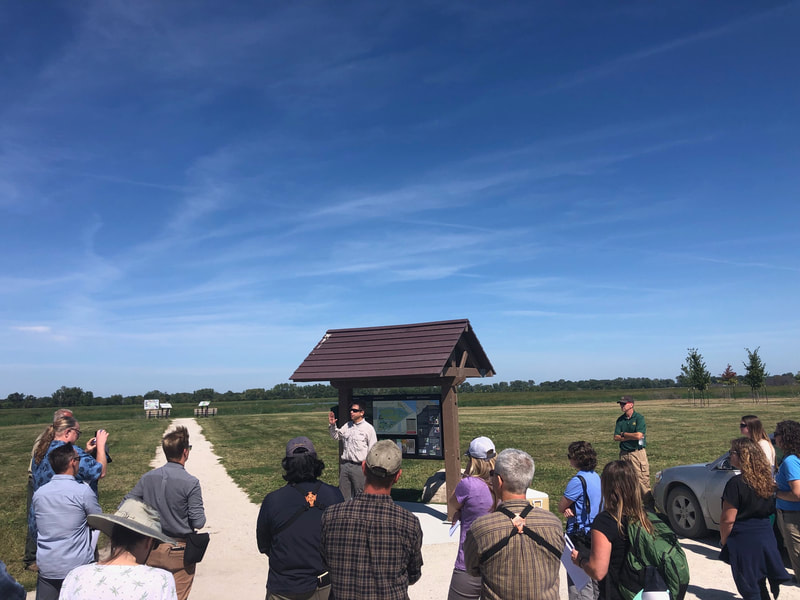Who We AreThe Great Lakes Coastal Assembly is a binational, voluntary partnership that works through member collaboration. We are comprised of coastal and natural resource driven organizations throughout the Great Lakes region conducting research and monitoring, implementing on-the-ground projects, and working on policy, planning, and outreach.
|
|
What We Do
Together, we have taken steps towards large-scale conservation in the Great Lakes region with a primary focus on coastal wetlands. Specific goals and initiatives are outlined in our Action Plan.
Our Members
State & Interstate
Illinois Dept. of Natural Resources ∙ Michigan Dept. of Environment, Great Lakes, and Energy ∙ Michigan Dept. of Natural Resources ∙ Minnesota Dept. of Natural Resources ∙ New York Dept. of Environmental Conservation ∙ Ohio Dept. of Natural Resources ∙ Ohio Lake Erie Commission ∙ Pennsylvania Dept. of Environmental Protection ∙ Wisconsin Dept. of Natural Resources ∙ Great Lakes Commission
Federal & Tribal
Environment and Climate Change Canada ∙ National Oceanic and Atmospheric Administration ∙ Sault Tribe of Chippewa Indians ∙ Bay Mills Indian Community ∙ U.S. Army Corps of Engineers ∙ U.S. Environmental Protection Agency ∙ U.S. Fish and Wildlife Service ∙ U.S. Geological Survey
Nongovernmental
Coastal States Organization ∙ Ducks Unlimited ∙ National Audubon Society ∙ Michigan Natural Features Inventory ∙ The Nature Conservancy ∙ Nature Conservancy of Canada
Universities
Central Michigan University ∙ Michigan Sea Grant ∙ Muskegon Community College
History
Conservation and management of coastal ecosystems and associated resources requires a diverse assemblage of, and collaboration among, federal, state, tribal, nongovernmental, and private interests. Bringing together that diverse assemblage was the intent of Great Lakes Coastal Conservation Working Group a cross-organizational team initiated in 2013 by the Upper Midwest and Great Lakes Landscape Conservation Cooperative (LCC). With our charter, the CCWG evolved into an independent, collaborative group outside of the LCC structure: the Great Lakes Coastal Assembly.
2010
Landscape Conservation Cooperatives (LCCs) are unveiled, including the Upper Midwest and Great Lakes LCC.
2013
The Great Lakes Coastal Conservation Working Group is formed.
2015
The Great Lakes Coastal Conservation Working Group launches the Saginaw Bay to Western Lake Erie Landscape Conservation Design (Coastal Wetland Blueprint).
2017
LCCs phased out.
2019
The Great Lakes Coastal Conservation Working Group transitions to a voluntary partnership, the Great Lakes Coastal Assembly.
